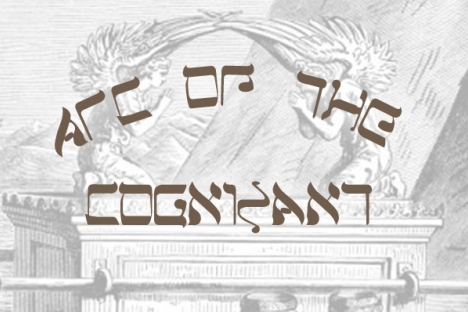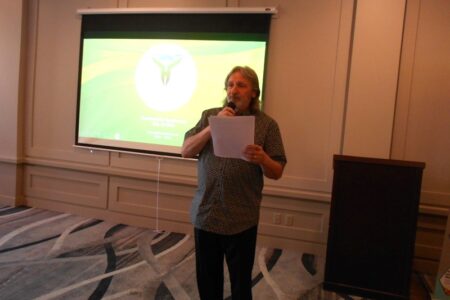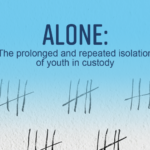Column: Part Two; Intervention and Immigration: Geopolitics in Transition
The Original cold war: radical democracy vs.reactionary monarchy in Europe
The Anglo-French contest – most definitely not a cold war – grabbing for power all around the world, acquired a very different complexion when revolutionary France became the first modern democratic republic with radical Jacobin ideology it wished to spread worldwide. The war of 1756-63 was quite unlike this next Anglo-French round of hostilities. Now Britain’s army was heavily engaged fighting inside Europe.
The USA, also a revolutionary republic, had had no intention to carry republican radicalism throughout Europe in an imperialist crusade, but Napoleonic France did just that, and the British organized Austria, Prussia, Russia, Spain, and Portugal to accomplish the French Empire’s ultimate overthrow. It was a crowning British win.
From 1815 to 1848, a cold war of Monarchy against Republicanism was evident in Europe; France was not a republic in this period, but a monarchy, along with all four of the other Great Powers. The cold war was ideological, with all monarchs resisting republican organizations who wanted the end of autocratic kings and popes, princes and aristocracy, in the name of The People. No Power took on the role of promoting/championing a liberated Europe, to be a beacon of republican rule.
Though France was not radical as during the revolutionary and Napoleonic eras, Paris was still the capital of revolutionary ideas and secret organizations in the eyes of reactionaries. Liberals and radicals in all corners of Europe looked to French ideas and models for the overthrow of aristocracy. Britain was liberal but not radical and would not promote democracy nor join the permanent alliance of conservative monarchs called the Holy Alliance, or three-emperors-league, of the Tsar, Prussia, and Austria. France was still formidable, and those three powers feared it still.
The Tsar of Russia was at the opposite pole from liberalism, the star of despotism, absolutism, and aristocratic order. This was a cold war without one side embodied n one great State, so this particular cold war of ideas did not require a grand war to determine the winner; the contest was more about which domestic political regime would rule, rather than about expanding empires of each Power. Monarchy was the clear victor. Radicalism lacked a State to fight for it against monarchs’ autocracy, which had so clearly been the role of France in the revolutionary era.
The cold war of the twentieth century
The five Powers of Europe formed what was called the “Concert of Europe” to keep peace; it worked well. Except for an Anglo-French war against the Tsar in the Crimea, there was a century of peace among Powers from 1815 to 1914. This Concert system effectively created a proto-UN, with leadership of the geopolitical order assumed by the five powers, and America as an adjunct for the New World.
The reason for absorbing some geopolitical detail about the fracture of the world — between monarchy/ aristocracy against republican democratic / anti-aristocratic ideals of “government by The People” — is this: the contest was a very clear fore-shadow of the ideological geopolitical fracture after 1920, and more so after 1946. A cold war is a rigid and not particularly healthy form of geopolitical order.
The twentieth century Cold War is the classic case of the genre. It was the rivalry of socialism/communism and “liberal/capitalist/democratic” models of societal order and economics. The West and the Communist bloc, or first and second worlds as some phrased it, confronted each other very self-consciously, in articulate rhetoric, in what we must recognize now as the classic portrait of a global Cold War. We know the West “won” the classic Cold War. Our ideological values triumphed.
Another cold war is unwanted in the West, to judge by the experts in the field of geopolitics and academic political science. It is easy to conclude from reading their essays, the geopoliticians wish to avoid such a global scenario. And yet many are writing that the realities of such a dysfunctional situation are now in formation.
What is coming next for those of us who still feel some attachment to the best and brightest ideals of democracy, faced with rivals who are less in harmony with them? That is part of the discussion in a future column.
Politics as a cold war
In the last Arc, I outlined the meaning of cold war in a political contest on the European scene after Napoleon’s defeat: the conflicting sides were republicans and monarchists. Socialists embraced the republican cause when they grew strong, for Marx had given them a potent ideology. Monarchy was victorious in this cold war.
Now it is time I turn my attention to the twentieth and twenty-first centuries.
European monarchies were not all the same; the UK was nothing like Tsarist Russia or the Kaiser’s German Empire in domestic political and legal order. Britain as an entente partner of the Tsar was somewhat embarrassed by being yoked to such an odious symbol of repressive autocracy.
Radical, popular democracy — applying republican forms of governance ( elected presidents, and the absence of a social class of “nobility,” were the basic features of Republics ) — was defeated in Europe in this early cold war in the battle of ideas for the best political order. As I said, the monarchist form won through, with two major exceptional cases in the USA and France continuing to offer counter-models to monarchy. And Republicanism was the norm in Latin American politics, a former colonial area no longer under the rule of monarchist Spain. It wasn’t a fading ideology, no matter its defeat by the autocrats and aristocrats of the great powers opposed to it. Right up to 1914, the monarchies did not feel secure from radicals.
This was the foundation of the political order inside European states before 1914.
Geopolitics from globalisation
Ideologies were less important in the geopolitics of the nineteeth-century European great powers outside in the world. While Europe was frozen in the ideological contest of political forms, with the democratic forces out of favour, European states were constructing economic globalization without regard to ideology. Outside Europe the powers were often in complete harmony about political forms in the colonial world: no democratic forms for the subject peoples of empire. France was in accord.
When there are global economics, there are global politics, or geopolitics. The fact that there was such a thing as geopolitics is made possible by European global reach, which I grounded in history in part one of this column.
For a very fine history of how the first globalization, prior to the one we now live in, came to be, see Niall Fergusson’s writing on the British Empire, and how that empire was the key to creating a global economy. Empire produced globalization.
[ see https://www.bu.edu/historic/hs/april03.html#fergusona ]
The British ruled an autocratic empire outside of the British Isles, in Asia and Africa, allowing their subjects much less liberty and representation than the people of the home territory in the UK; India, Nigeria, and Sudan, among others, were denied democratic regimes. The UK was not a geopolitical champion of democracy. However, it was not inclined to crush democratic forces by Tsarist-like measures when India developed a democratic movement using British parliamentary tactics.
Geopolitics failed Britain in the most important goal the British had as geopolitical actors, which was: to keep peace in Europe so that their Empire could reap its indisputable capitalist profit, from investing in colonial-commercial economics, and use the profits to create England as the affluent middle-class parliamentary Eden.
War was a test of empires. Britain was exhausted by two wars and its economy too battered and small to be an equal of the USA and USSR. War and economic weakness would force the UK to dismantle the Empire by 1965, liberate the underdeveloped colonies, and say farewell to its historic imperial glories and racialist embarrassments. Canada, riding with Britain in the imperial high-noon, would feel some by-blows of Britain’s decline, but found a new patron power to the south.
Two titanic world wars: geopolitical failure of the worst order
The aristocratic monarchies, plus republican France, mobilized the vast resources of their empires and went to war in 1914. That conflict has aptly been called the “suicide of Europe.” Europeans called it the Great War. The English in particular wanted to call it “the war to end war” and American idealism endorsed that view after 1917 when the USA came in to rescue the Allies when Russia fell out of the war. The next one was “the war to make the world safe for democracy.”
The war now best known as the First World War, undermined the ruling power of aristocracies all over Europe and destroyed the empires of the Kaiser, the Tsar, the Habsburg emperor, and the Turkish Sultan.
Japan was the only Asian Power of significance, an equal of European Powers, and soon revealed its capacity for violent imperialism when it invaded China. WWI was certainly not a war that ended war; quite the reverse.
WWI did invent a new geopolitical institution, the League of Nations. The USA never joined it, Germany pulled out of it in the early phase of Nazi rule, and the USSR did not join until 1934. The LN meant to make war illegal, and enforce that law. It ended in failure and ignominy yet rose again in a new form after the next world war.
Democratic, populist, anti-aristocratic, and racialist imperialist ideologies appeared to be ascendant. Right and Left defined themselves starkly after 1920. In the 1920’s, Bolshevism against Fascism and Naziism were the poles of a partial cold war; it was partial because the USA, Britain, and France tried to keep to the centre while other nations went to the extremes.
The Spanish Civil War of 1936 to 1939 was a great opportunity for Germany and Italy to intervene on the fascist side and deal Stalin’s Russia a defeat when he supported the Republic. This was a classic war where the Powers used proxy force to fight ideological foes, Right against Left.
The three democracies of France, the US and UK, chose to not help either side. The Axis of Hitler and Mussolini chose to let Japan into the alliance, for the fascist leaders fully appreciated Japan’s hostility to the USSR. Canadians fought as volunteers for the Republic, and a very few for the Fascist force of Franco.
A War of three ideologies: Nazi Germany, communist Russia, liberal USA
Hitler, Mussolini, and the Japanese aligned ideologically against Communism. The resulting war, the Second World War, pitted them against the USSR of course; America and the British Empire allied with Russia. That tipped the balance decisively against the Axis and the Allies won the war. The Red Army was enormously larger than the Anglo-American forces in Europe in 1945 but the USA possessed the great naval and air force to smash the Japanese Imperial Army. If the British Empire could claim one victorious act of its own, it was to bring down Italy.
America, Britain, and Canada were the ABC allies in this war, and their liberal democratic free-market capitalist ideology was enshrined in a document called the Atlantic Charter. The two great powers, America and the British Empire, began to plan a successor institution to the failed League of Nations, the United Nations. It was these two democratic powers that developed the atom bomb to drop on Japan. For a very short while, till 1949, only they had the bomb.
Canada was a loyal ally of the two, and an important force in the Normandy invasion that brought the Western and Russian armies to join in victory over Germany. For a short historic moment, Canada had the fourth-largest military mobilized and fully armed modern force on the planet. That was in mid-1945, before demobilization.
Canada was very much a supporter of the UN and its idealism, and helped a great deal to draft, with Americans and British, The UN Declaration of Human Rights published in 1948, an iconic document of liberal democratic political thought.
END PART TWO (Part Three will appear soon.)

























